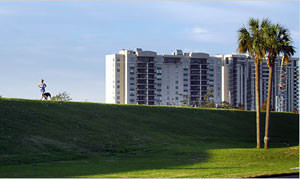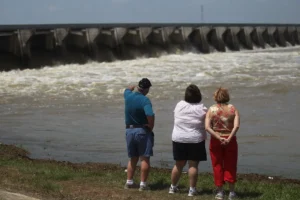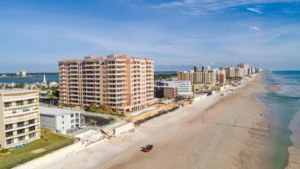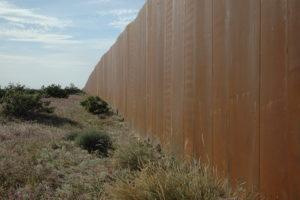More Problems With New Orleans Levee Work
In what officials are calling a "strategic pause," work on New Orleans' levees is at a standstill. The Army Corps of Engineers says it has been delayed by engineering, budget and local-government hurdles, but critics -- including some inside the corps -- say the agency is simply dragging its feet. (h/t: Crooks and Liars)
In what officials are calling a “strategic pause,” work on New Orleans’ levees is at a standstill. The Army Corps of Engineers says it has been delayed by engineering, budget and local-government hurdles, but critics — including some inside the corps — say the agency is simply dragging its feet.
Your support is crucial…New York Times:
Contractors are waiting impatiently for the chance to bid on jobs. “By now, I would have expected there to be many more jobs bid and under way,” said Robert Boh, the head of Boh Brothers, a major local contractor. “We’re going to dance as soon as anyone asks us.”
The change of pace is obvious to nonexperts as well. Willis Reed, 64, who was fishing at Lake Pontchartrain along a levee that is to grow higher by several feet, said the contrast between the first phase and the second phase was striking. These days, Mr. Reed said, it seems that “everybody’s dragging a leg.” Even some within the corps say things should have been well under way by now. An engineer who left the corps, and was granted anonymity because he continues to work with the agency, said, “We should have been turning dirt months ago.”
The new, $6 billion phase involves raising the levees above their new levels, armoring the most vulnerable against erosion and creating pump stations to block the surge from Lake Pontchartrain in future storms.
Instead of the placid bank of earthen levee behind the spot where Mr. Reed was fishing, bulldozers could be shaping the terrain to add height and width to the levee. Dump trucks could be bringing their heavy loads of clay-rich earth drawn from borrow pits in the area. But for now there is no noise to disturb Mr. Reed.
Corps officials say the early work was done in the spirit of addressing a crisis, when they had broad latitude to get the job done. Officials on the ground, who call the current lull a “strategic pause,” say the new work has to be planned with great care. And they say it is a greater challenge to design and build new flood protection — the bulk of the second-phase work — than it is to patch breaches.
With an uncertain future and a new administration casting doubt on press freedoms, the danger is clear: The truth is at risk.
Now is the time to give. Your tax-deductible support allows us to dig deeper, delivering fearless investigative reporting and analysis that exposes what’s really happening — without compromise.
Stand with our courageous journalists. Donate today to protect a free press, uphold democracy and unearth untold stories.







You need to be a supporter to comment.
There are currently no responses to this article.
Be the first to respond.